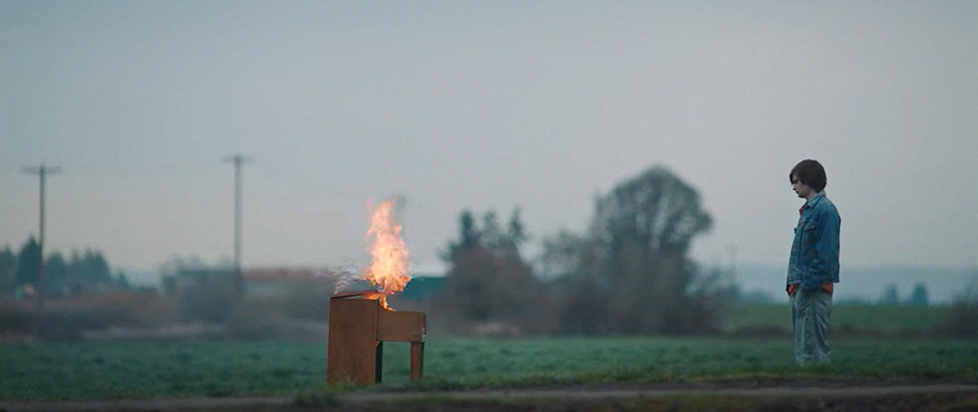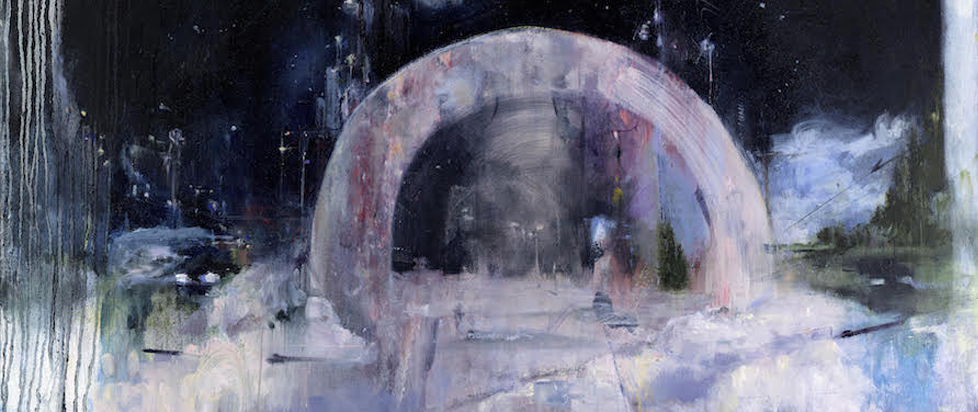
It’s Us Or Them
 This column is a reprint from Unwinnable Monthly #122. If you like what you see, grab the magazine for less than ten dollars, or subscribe and get all future magazines for half price.
This column is a reprint from Unwinnable Monthly #122. If you like what you see, grab the magazine for less than ten dollars, or subscribe and get all future magazines for half price.
———
ROOKIE OF THE YEAR A tongue-in-cheek but also painfully earnest look at pop culture and anything else that deserves to be ridiculed while at the same time regarded with the utmost respect. It is written by Matt Marrone and emailed to Stu Horvath, who adds any typos or factual errors that might appear within.
———
There is a moment in The Lumineers’ reputation-redefining record, III, when the second and third generation of a drug-addled family pass a hitchhiker on the side of the road.
“You never give a hitcher a ride,” Jimmy Sparks warns his son, Junior, “‘cause it’s us or them.”
Jimmy is a product of his alcohol-soaked mother, Gloria. He’s a wreck. All of the pivotal moments of his life seem to happen at 3 a.m. This one’s no exception.
And it’s 3 a.m. again, 20 years later, when Junior reaches his own crossroads. He’s driving alone, the sense from the record that he could still break free, could still snap off his branch of the family tree. He sees, on his way home from his graveyard shift, a beat-up barefoot man at the side of the road. It’s his father, in the latest mess of his own making.
“His old man waved his hands with tears in his eyes / But Jimmy’s son just sped up and remembered daddy’s advice / No, you don’t ever give a hitcher a ride, ’cause it’s us or them / ‘Cause it’s me or him”

It’s not entirely clear from the song or from the video – one of a series of short films that add a whole other layer to III’s storytelling – whether Junior recognizes his father or not in that moment. But the lesson seems to be different somehow, not about the dangers of strangers or worse, the pervasive Sparks family selfishness. Instead it seems like healthy self-preservation. Maybe Junior is going to make it out after all.
III is a stunning record with beauty and tragedy and hope – and hooks. It raises The Lumineers – that previously rather disposable toe-tappin’ “Hey Ho” band from Ramsey, New Jersey, one Pitchfork would hardly lower itself to cover – to another level. They were decent but never this good before, and might never be this good again.
In 2019, though, they delivered. The Lumineers’ third record, III, is my 27th annual Album of the Year.
The Lumineers had a ton of competition worth mentioning. Big Thief’s weird and wonderful U.F.O.F. might have cruised to a victory in some other years – and, admittedly, is probably the better record from an objective standpoint. Objective obschmective. The Highwomen’s debut made it possible I’d actually pick an all-female country supergroup. Last year’s winner, Caamp, released a more than fine follow up. Previous winner The Tallest Man on Earth dropped another great one. There was also Sharon Van Etten, Yola, Chromatics and my favorite new artist this year, Jade Bird. And Todd Snider’s Cash Cabin Sessions, Vol. 3 is a delightful mix of humor, melancholy and modern politics.

Of all things, it was a random Twitter post by a Twin Peaks connection that alerted me to The Lumineers’ new one. I’d seen them perform years ago at the Newport Folk Festival and I own their first album, but they never made much of an impression on me. I had no intention of following their career further. Which was why her tweet spoke to me:
“I’ve honestly never been that into this band but this album and its subsequent music videos is amazing,” Melanie Mullen wrote.
I was feeling adventurous, so I gave another shot to what I had concluded was just another ubiquitous MOR rock-folk-Americana fusion band in the vein of the dreaded Mumford and Sons.
But all I needed to do was listen to a brief preview clip of the album’s opening track, “Donna,” and I knew something was different.
As I said to my wife, “You don’t start a concept album with a song this good unless you can back it up.”
They backed it up.
“Donna” is the first of a three-part opening short story about Junior’s grandmother, Gloria. It’s followed by “Life in the City” and “Gloria,” making up the album’s first of three acts, the latter two songs more upbeat musically but certainly not lyrically, painting a picture of an alcoholic mother and the suffering she inflicts on herself and others. It’s not a 2019 story of opioid abuse, but it resonates all the more for it timelessness. And the film clips that accompany the record, by director Kevin Phillips, underscore her tragedy. By the end of her vignette, she’s passing out drunk while holding an infant and then running across a barren field from the scene of a brutal car crash, her bleeding husband left in the passenger seat, yet it’s almost impossible not to sing along as the album’s first single plays around her. That dissonance, like a good Radiohead song, gives “Gloria” all the more power.

Act 2 jumps forward in time to Gloria’s grandson. “It Wasn’t Easy to Be Happy For You” is an identifiable song about a teenage breakup – no history of family addiction needed. When you add the video, though, it becomes particularly poignant. We see a beautiful young girl enchanting Junior on the roof of his car and, later, in the front seat. She’s exciting, provocative. You can feel the limitless possibilities she represents to a young man who doesn’t seem to have all that many. Then she opens the door and saunters her way out of the car into the great wide open. Junior tries to follow her. But the camera pans and, like magic, she’s already gone.
Junior’s mother has also left her father and the next two songs unpack that dynamic, before the record rolls back a generation to his father, Jimmy Sparks, a prison guard trapped in a cell mostly of his own making, his only joy keeping others in their metal cages. It’s even darker than what we’ve heard so far, and brings us to the 3 a.m. moments in the car and elsewhere.
The record, which is a tight 10 songs and 38 minutes long, lands its finish. The chorus on “Salt and the Sea” – a song that shares a little part of its soul with another cleansing cinematic album-closer, “Love Reign O’er Me” – hints at reconciliation with the refrain, “I’ll be your friend / In the daylight again,” but of course it’s not nearly as simple as that.
With the family history the Sparks have, it can’t be.
———
Matt Marrone is a senior MLB editor at ESPN.com. He has been Unwinnable’s reigning Rookie of the Year since 2011. You can follow him on Twitter @thebigm.




